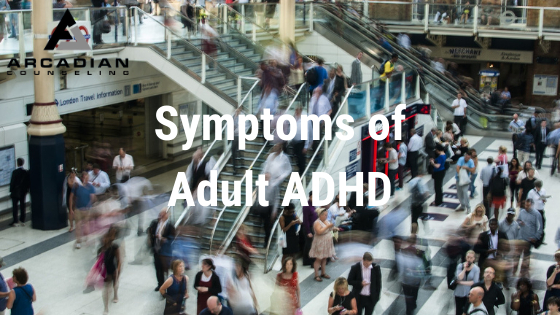Warning: self-diagnosis ahead!
If you search Google for “symptoms of adult ADHD” you are bound to end up confused and probably self-diagnosing yourself with some mental health disorder!
There’s been a lot of talk about childhood attention deficit hyperactivity disorder (ADHD) in recent years. So much so, that it has sadly become one of the most over-diagnosed disorders among children. But what many don’t realize is this behavioral issue significantly affects adults as well (usually the parents of the children who are accurately diagnosed).
While the exact cause of adult ADHD isn’t yet understood, recent research seems to indicate that genes and heredity, the foods we eat, and our environment play significant roles.
Symptoms of adult ADHD

ADHD is one of the most over-diagnosed disorders among children. This often leads to medicating a child that doesn’t need to be medicated.
Many people with symptoms of adult ADHD who are eventually diagnosed with ADHD have always “sensed“ that something was off, but they were often too embarrassed or ashamed to seek help. Others still never paid attention to the many signs (or were blissfully unaware):
Here’s some of the most common symptoms of Adult ADHD:
- Difficulty focusing attention, especially when it comes to reading maps, books or magazines.
- Home, office, and/or personal spaces are always disorganized and messy.
- It’s challenging to complete tasks and projects.
- A mental fog or haze.
- Friends and family members tease about being scatterbrained.
- Symptoms have been present since childhood.
- Other family members also have attention issues or suffer from depression or anxiety.
Beyond reviewing and self-assessing lists of symptoms, adults may also take the Conners Test. This test is considered the gold standard and superior to neuropsychiatric testing by many people in the mental health field. However, the diagnosis of ADHD is a clinical one and does not generally require a neuropsychiatric testing (unless you wish to have a child evaluated for learning disabilities).
It’s also important to remember that any diagnosis of a mental health disorder is subjective and is done by a human. And this may or may not come as a shock to you, but humans have been known to be wrong from time to time. ????
You can learn more about the Conners Test here.

Beware when searching for symptoms and attempting to self-diagnose yourself. Before you know it, you may end up with a terminal illness!
Other disorders or challenges that could mimic adult ADHD:
It’s important to mention that there are other disorders and conditions that exhibit similar symptoms to adult ADHD:
- Menopause
- Sleep apnea
- Insomnia
- Chemotherapy
- Certain prescription medication such as antibiotics and blood pressure medication
- Bipolar disorder
- Depression
- Substance-abuse
- Head injuries
Getting an accurate diagnosis

Finding a well trained and skilled therapist who can objectively assess and diagnose your symptoms is crucial.
While you can use your symptoms of adult ADHD to try and diagnose yourself, your best course of action is to find a well trained therapist who can take a detailed history and determine if your symptoms are truly ADHD or stem from something else.
If you actually do have adult ADHD, you’ll want to work with your therapist or coach to come up with the right plan of action tailored specifically to you – not some cookie cutter approach for the masses.
Your action plan may include a combination of therapeutic strategies such as medication, nutrition, behavioral therapy, exercise or even joining a support group. Finding the right plan for you will likely take a bit of research, planning, and testing. But once you find the right strategies, you’ll be able to manage your symptoms and live a happier and productive life.
Life is short but needlessly struggling with symptoms of adult ADHD isn’t necessary. If you’re struggling to stay organized and focused and you feel like your performance and satisfaction in life isn’t where it should be, find and awesome therapist you like and trust to help you figure things out.
James Killian, LPC is the Principal Therapist & Owner of Arcadian Counseling in New Haven, CT where they specialize in helping over-thinkers, high achievers, and perfectionists reduce stress, increase fulfillment and enhance performance so they can move From Surviving To Thriving.

